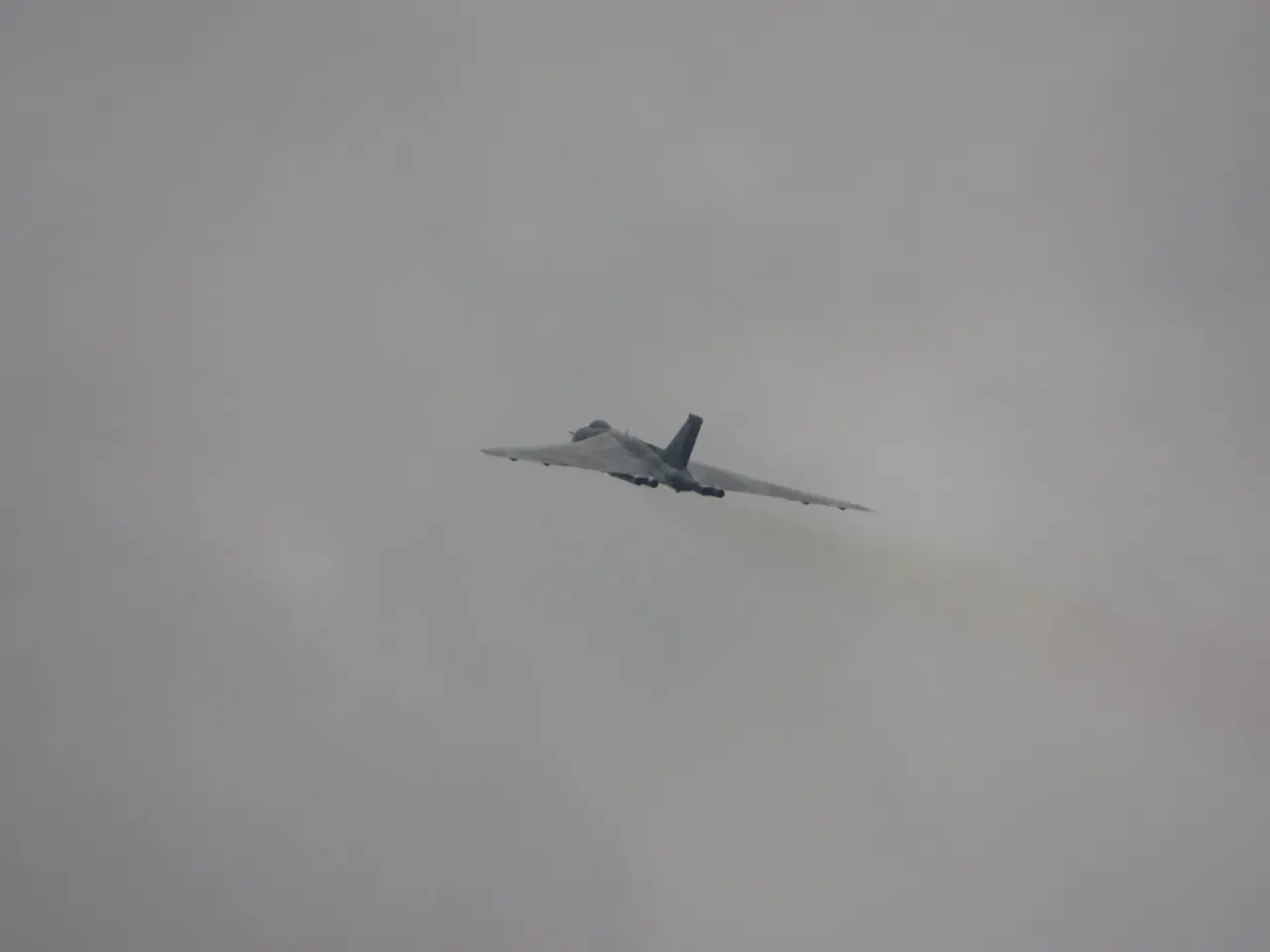Solar-powered drone cruises for 74 hours straight, boasting wingspan as vast as a Boeing 747 aircraft.
In a groundbreaking development, the US-based aerospace startup, Skydweller Aero, has successfully flown its solar-powered drone, Skydweller, for nearly three days straight in recent tests. This significant achievement has caught the attention of the Naval Air Warfare Center Aircraft Division (NAWCAD), which is currently evaluating the drone's potential for long-duration intelligence, surveillance, and reconnaissance (ISR) missions within the vast U.S. Southern Command (SOUTHCOM) area.
The Skydweller drone, with a wingspan wider than a Boeing 747 and its airframe built from carbon fiber, is a marvel of modern engineering. Its expansive wings are covered with 17,000 solar cells that can generate up to 100 kW of power, ensuring continuous day-and-night operation. The drone's large payload capacity of up to 400 kg allows it to carry advanced ISR sensors and communication equipment, making it ideal for persistent monitoring tasks over vast regions such as oceanic or conflict zones.
One of the standout features of the Skydweller drone is its ability to harness solar energy and store excess energy in onboard batteries for nighttime flight. This capability supports the goal of "perpetual" flight by enabling sustained wide-area surveillance without the need for frequent landings or refueling. The Navy's multi-day testing, including a 73-hour continuous flight, demonstrates not only endurance but also advances in autonomous flight management, energy use, and weather adaptability necessary for "perpetual" flight applications.
The Skydweller drone's AI-driven data processing enables onboard target classification, reducing data loads sent to ground control and enabling efficient bandwidth use for long-duration autonomous missions. This self-powering design allows for a continuous presence over a target area with fewer aircraft and lower operational costs compared to conventional fleets.
Moreover, Skydweller Aero plans to enter the commercial sector, with potential applications in scientific fields such as atmospheric data collection or environmental monitoring. The drone's ability to provide unbroken monitoring over large swaths of ocean and land could aid in detecting activities like drug trafficking and illegal fishing.
In conclusion, Skydweller Aero's solar-powered drone offers a sustainable, efficient, and near-continuous surveillance platform that can monitor wide areas over extended durations without interruption. Its potential to revolutionise ISR missions, reduce operational costs, and contribute to various sectors makes it a technology worth watching.
- The aerospace innovation showcased by Skydweller Aero's solar-powered drone, with its advanced technology and science, could redefine space-and-astronomy by providing persistent monitoring over vast regions like oceanic and conflict zones.
- The Skydweller drone's ability to harness solar energy and its AI-driven data processing are significant advancements in technology, enabling autonomous flight management, energy use, and weather adaptability for "perpetual" flight applications.
- Skydweller Aero's solar-powered drone, with its potential applications in scientific fields such as atmospheric data collection or environmental monitoring, could make contributions to fields beyond the military, including the detection of illegal activities like drug trafficking and illegal fishing.




